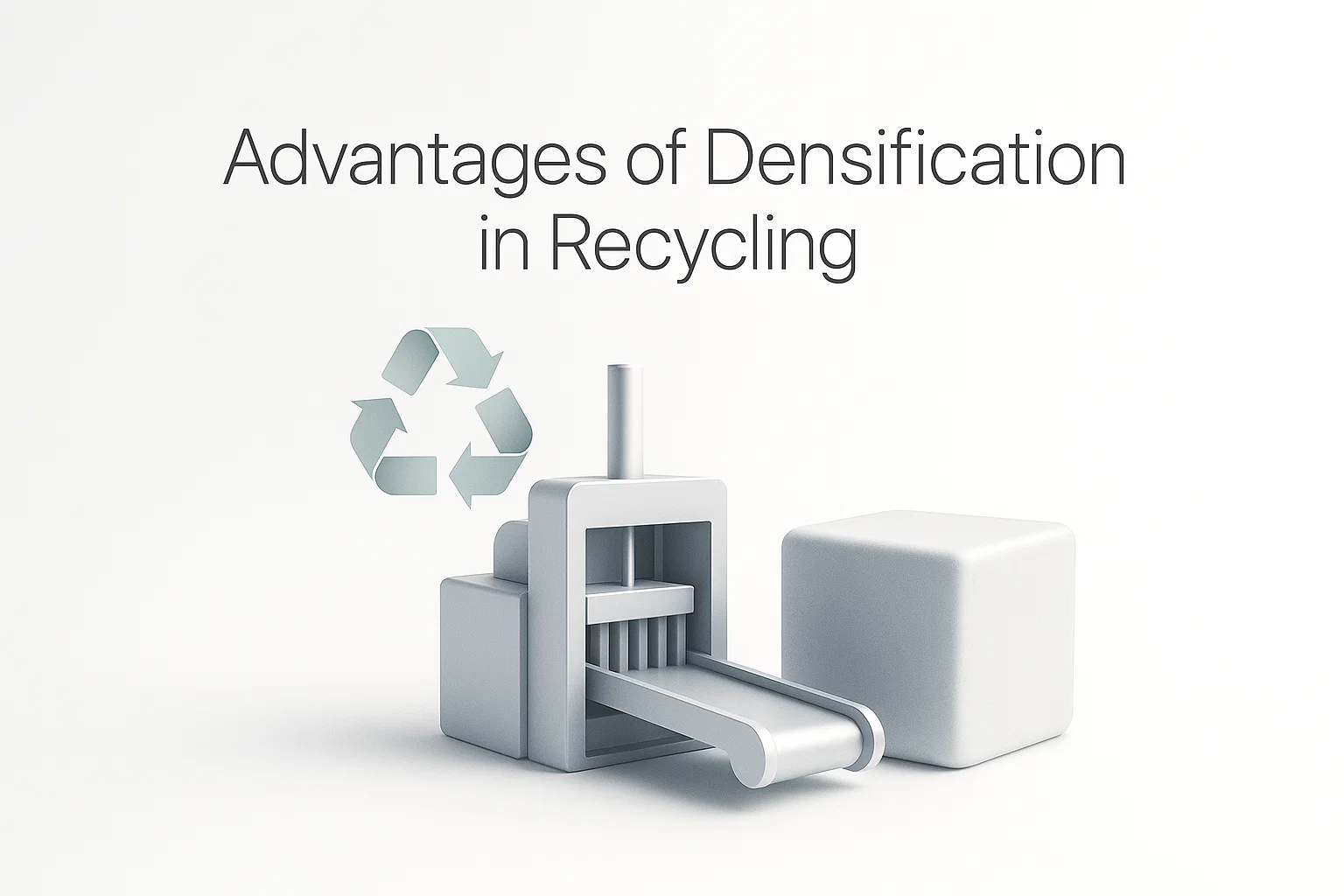Managing low-density plastic waste creates a specific logistical bottleneck: high volume relative to weight. For recycling facilities handling PE films, PP woven bags, or EPS foams, “shipping air” destroys profit margins. Densification effectively bridges the gap between light waste and high-value feedstock.
What is Plastic Densification?
Densification (often called agglomeration) is the mechanical and thermal process of compacting voluminous plastic scrap to increase its bulk density. This is achieved through friction, pressure, or direct heat.
Unlike simple baling, a Plastic Film Densifier semi-plasticizes the material. The friction heat generated during the process dries and shrinks the plastic, transforming fluffy waste into semi-molten, free-flowing granules. Rumtoo engineers these systems to maintain precise temperature control, ensuring the material structure is altered for density without degrading the polymer chains.
Key Operational Benefits
1. Massive Volume Reduction (10:1 Ratio)
The primary metric for densification efficiency is the bulk density ratio.
- Raw State: Loose PE films or EPS foam often possess a density of <50 kg/m ³.
- Densified State: Post-processing density increases to 400–600 kg/m ³.
This 10-fold to 50-fold reduction minimizes the facility footprint required for storage. For high-throughput operations, this converts manageable warehouse piles into compact, stackable big bags.
2. Optimized Logistics and Payload
Transportation costs are driven by volume, not just weight. Non-densified plastics prevent containers from reaching their maximum weight capacity. By utilizing a high-performance plastic film densifier, exporters can maximize container payloads, significantly reducing the cost-per-ton in shipping.
3. Downstream Extrusion Stability
Feeding light, fluffy material directly into an extruder often leads to “bridging” in the hopper and inconsistent feeding rates. Densified material flows similarly to virgin pellets, ensuring:
- Stable Amperage: Constant motor load on the extruder.
- Higher Output: Consistent screw filling increases kg/h rates.
- Moisture Control: The friction heat generated during densification effectively reduces moisture content from ~30% (post-wash) to <3%, preventing hydrolysis and bubbles during the final pelletizing stage.
Material Compatibility
Densification is not a one-size-fits-all process. The equipment must be matched to the specific polymer:
- PP/PE Films & Bags: Best suited for friction-based agglomerators which simultaneously dry and densify.
- EPS/EPE Foams: Require thermal densifiers (hot melt) or screw compactors (cold press) to break down the expanded structure.
- Fibers and Yarns: Nylon and PET fibers are processed to prevent wrapping and tangling in downstream equipment.
Technical Considerations for Buyers
When selecting densification machinery, engineers should prioritize the following specifications over general throughput claims:
- Motor Power (kW): Ensure sufficient torque for startup under load.
- Blade Material: Rumtoo utilizes high-grade tool steel for rotor and stator blades to extend service intervals between sharpening.
- Cooling System: Water injection capabilities are critical for controlling temperature spikes during the agglomeration of sensitive materials like LDPE.
At Rumtoo, we focus on durability and energy efficiency. Our densification solutions are designed to handle high-contamination loads while delivering the consistent bulk density required for premium recycled pellets.



